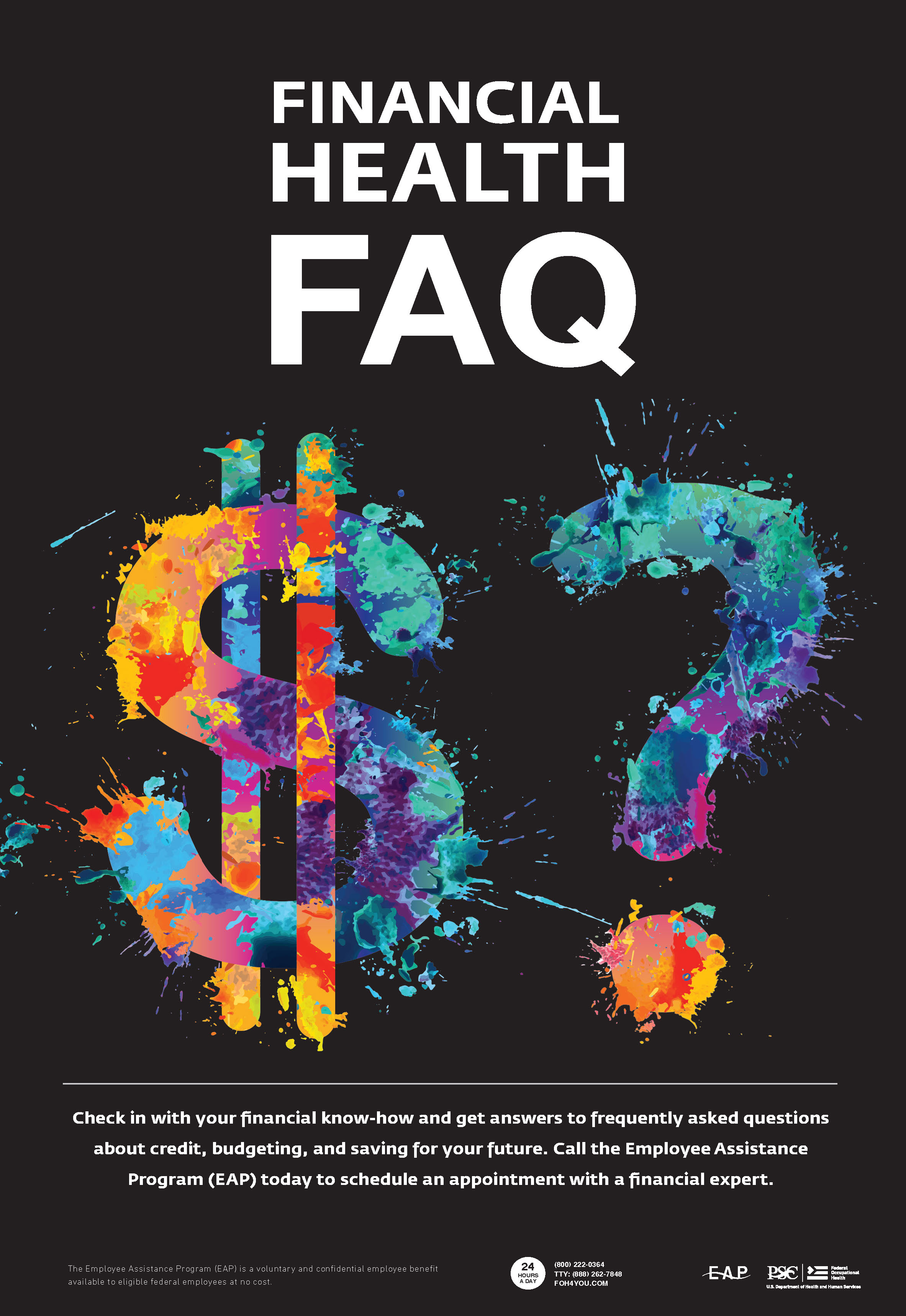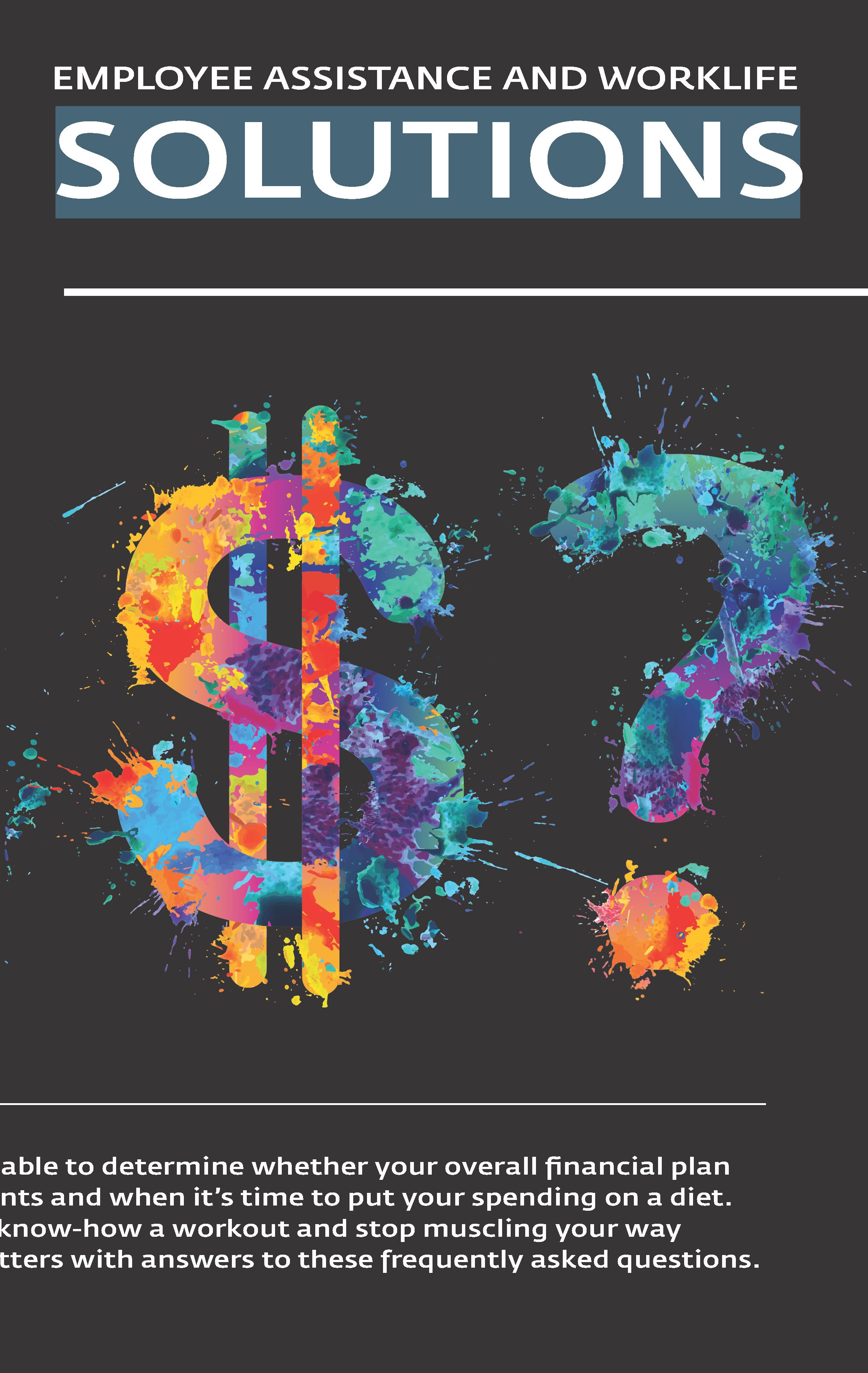
Ensuring that your finances are healthy and fit starts with knowing how to get them in shape. This involves being able to determine whether your overall financial plan lacks certain nutrients and when it’s time to put your spending on a diet. Give your financial know-how a workout and stop muscling your way through money matters with answers to these frequently asked questions.
1. What is financial literacy?
Being financially literate means having the knowledge and skills necessary to make smart decisions about money, and actively applying them to become financially stable and achieve financial independence. It’s understanding how to budget, save, invest, and when to appropriately use credit. It’s also being able to afford the cost of everyday living, cover emergency expenses, and protect your future — all without going into debt.
2. What does it mean to be financially independent?
Financial independence can look different to each person. In general, though, it’s having enough income or funds on hand to live comfortably for the rest of your life. This means being able to pay for living expenses, emergencies, and save without needing to borrow money or depend on others.
3. Am I financially savvy?
People who have a real hold on their financial situation can answer yes to all or most of the following:
Yes No
⬜ ⬜ Are you currently debt-free or taking action to reduce your debts?
⬜ ⬜ Is your attitude toward money healthy (i.e., are you goal-oriented and proactive in your approach to spending and saving)?
⬜ ⬜ Do you know how much you spend each month on living expenses?
⬜ ⬜ Do you have (and stick to) a monthly budget that includes all of your basic expenses?
⬜ ⬜ Could you cover emergency expenses (i.e., sudden loss in income, totaled vehicle, or unexpected medical bill) without borrowing money?
⬜ ⬜ Do you have short- and long-term financial goals?
⬜ ⬜ Are you familiar with insurance and the types needed to protect your health, life, assets, and family?
⬜ ⬜ Do you have a retirement plan and a will?
If you answered no to a few questions, don’t be discouraged. You can take small steps that go a long way to adding more checks to the yes column. Creating a budget and checking your credit report are two easy places to start.
4. What should a monthly budget include?
- Income: Salary/earnings, tips, passive income, interest
- Investments and savings: Retirement, college, emergencies
- Debt: Credit cards, personal or auto loans
- Expenses:
- Housing: Mortgage, rent
- Insurance: Homeowner, auto, health, life
- Utilities: Electric, gas, water, trash service
- Bills: Phone, internet, cable
- Food: Restaurants, groceries
- Transportation: Gas, public transit, tolls, parking, vehicle maintenance
- Medicine: Prescriptions, over the counter
- Subscriptions: Streaming services, magazines, apps
- Essentials: Toiletries, kitchen and bathroom staples, cleaning supplies, yard maintenance
- Entertainment: Concerts, amusement parks, movies, hobbies, date nights
- Travel: Airfare, luggage fees, hotel/private residence stays, rental cars, trip insurance
- Health and fitness: Therapy sessions, massages, gym memberships, wellness apps
- Shopping: Furnishings, electronics, clothing
- Personal care: Haircuts, skincare, cosmetics
- Childcare: Daycare, babysitter, nanny/au pair
- Pet care: Vet visits, grooming, food, insurance/health plan
- Gifts and giving: Birthdays, holidays, charities
- Fees: ATM, bank, interest, investments
Don’t forget about items that may be billed quarterly or annually, like property taxes, vehicle inspections and registration, household/appliance maintenance, pest control, credit card membership fees, and organization dues. Divide the total annual amounts by 12 and factor each of them into your monthly expenses.
5. Why are my credit scores and reports important?
Your credit score is a number between 300 and 850 that is derived from five key factors: payment history, amounts owed, length of credit history, credit mix (credit cards vs. personal loans, etc.), and new credit inquiries. Potential lenders and landlords use your score to determine your creditworthiness and where to set your interest rates and credit limits. The higher your score, the better your rates and limits, and the better you look in terms of trusting that you’ll pay your bills on time.
Your credit report, on the other hand, is a comprehensive account of your credit history, including detailed information about the five factors that make up your overall score. Everyone is entitled to one free credit report per year, and it’s recommended that you check yours at least that often. Doing so allows you to stay proactive against fraud and identity theft, catch and dispute any errors, correct false or outdated information (that can damage your credit score), and ensure correct payment reporting.
If managing money isn’t your strong suit, you’re not alone and it doesn’t mean that you can’t improve your situation or someday achieve financial freedom. Educating yourself and seeking guidance from experts are two of the most important things you can do to strengthen your financial health. Get started by reaching out to the Employee Assistance Program (EAP). The EAP’s financial wellness program includes three free 30-minute telephone consultations, per topic per year, with a financial expert. Call any time, day or night, to schedule an appointment.



